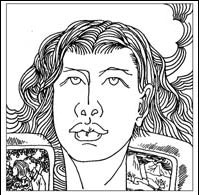TV series mirrors rural life
Updated: 2007-10-13 06:55
When I was a reporter in Hong Kong, a visiting mainland scholar told a gathering of the so-called "China watchers" from various foreign news organizations that they could never hope to understand China unless they spent time in rural areas, observing how people live and learning how they think.

He couldn't be more right. Having spent four years in Beijing and Shanghai, I thought I knew a lot about the mainland until I began watching the popular TV drama series Love Affairs in the Village. Like many other fans of the series, I found it entertaining not because of its intriguing plot or breathtaking scenery, but because it is so true to life.
Many viewers' comments on entertainment websites have attested to the series' authenticity of daily life in rural China. There are no big stars to lend glamour to the show, but the actors' and actresses' highly credible performances make the story very believable.
I am not a professional film or TV critic. My judgment on cinematography and showmanship may be flawed. But as a reporter for many years, I know a good story when I see one, and I can recommend the drama series to those who are serious about understanding China.
The heroine of the series, played by a professional dancer from Beijing, is a young woman whose love affair with the village's only university graduate is jeopardized by her stubborn father who bears a grudge against the boy's father. But hold your sneer. This is not another Romeo and Juliet rip-off.
Unlike the spoilt lass in Shakespeare's play, our heroine is not attended to by legions of maids and does nothing all day but dream of love. Instead, she toils in her family's tofu workshop with her parents and worries not so much about her troubled love affair but rather of meeting customers' rising demand for quantity and quality.
In contrast, her boyfriend seems like a wimp, too weak to face up to his father who is obsessed with becoming village chief. Failing to find work in the city after graduating from university, the young man goes through a tough time re-adjusting to living in his home village.
The story is unmistakably rural Chinese. The grudge between the feuding fathers involves nothing more than a stray goat of one family tramping on vegetable garden of another. And the love between the young couple is as mild and subtle as the color and taste of longjing tea. It all comes down to a matter of pride, or, in a Chinese context, face.

In this drama series, we see the respect common folks pay to learned people, the awe they hold for people in office and the authority they wield over their children. Any show of passion is limited to an exchange of a few harsh words. And you'll have to be a regular viewer to know who's in love with whom because there are no visible cues, not even an embrace to betray the relationship.
This may sound boring to viewers who are addicted to a TV diet of fantasy sex and senseless violence. But for those of us who like a good story told plainly and effectively should appreciate Love Affairs in the Village.
Like a good news story, this TV drama series pay meticulous attention to details that go beyond props and the locale. Viewers notice those details in the manner the characters talk, the style in which they dress, the way they live and the aspirations they have. Small things, like the strings of corn and red peppers hanging in front yards and the practice of covering the phone with a cloth, something unheard of in the city, also help add color to the story.
The popularity of this 30-episode series has reportedly prompted a sequel. Perhaps the producer would consider including English subtitles in the second series.
E-mail: jamesleung@chinadaily.com.cn
(China Daily 10/13/2007 page4)
|
|
|
|
|
|